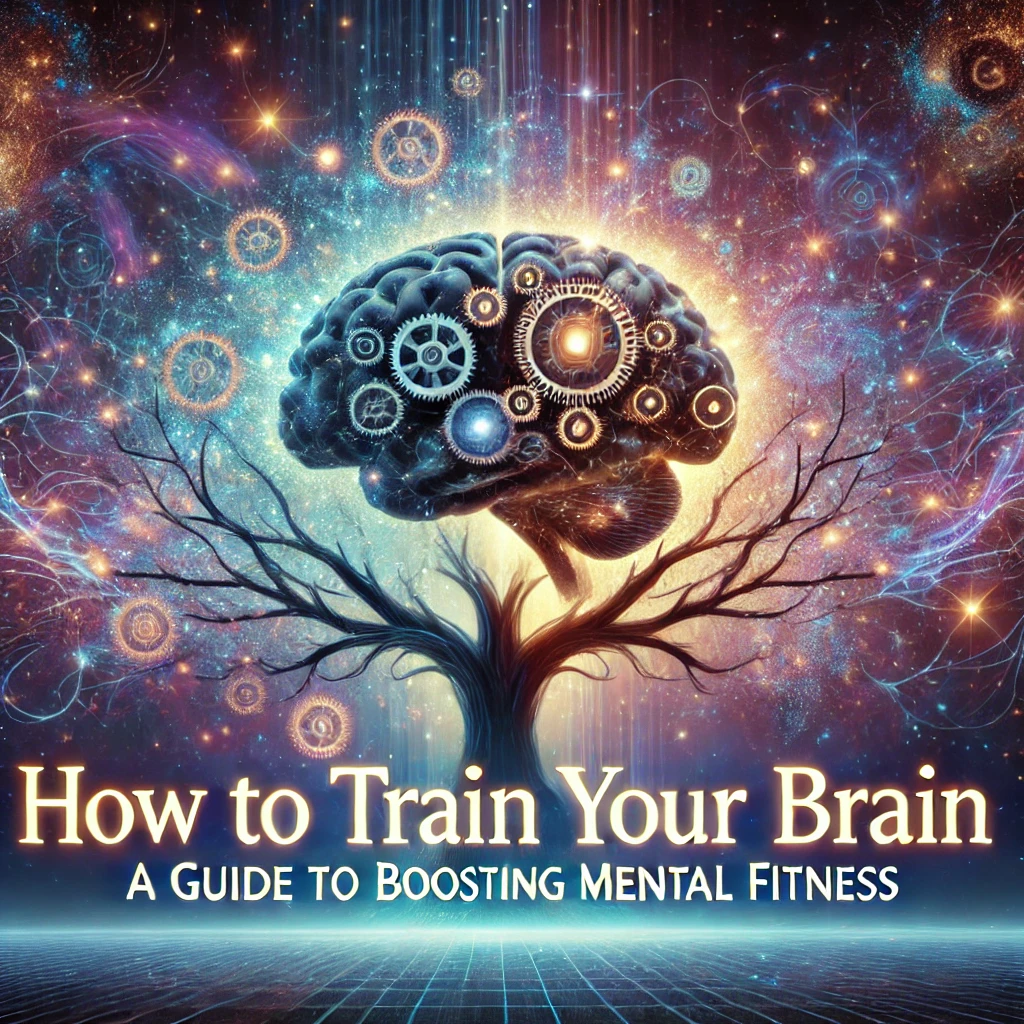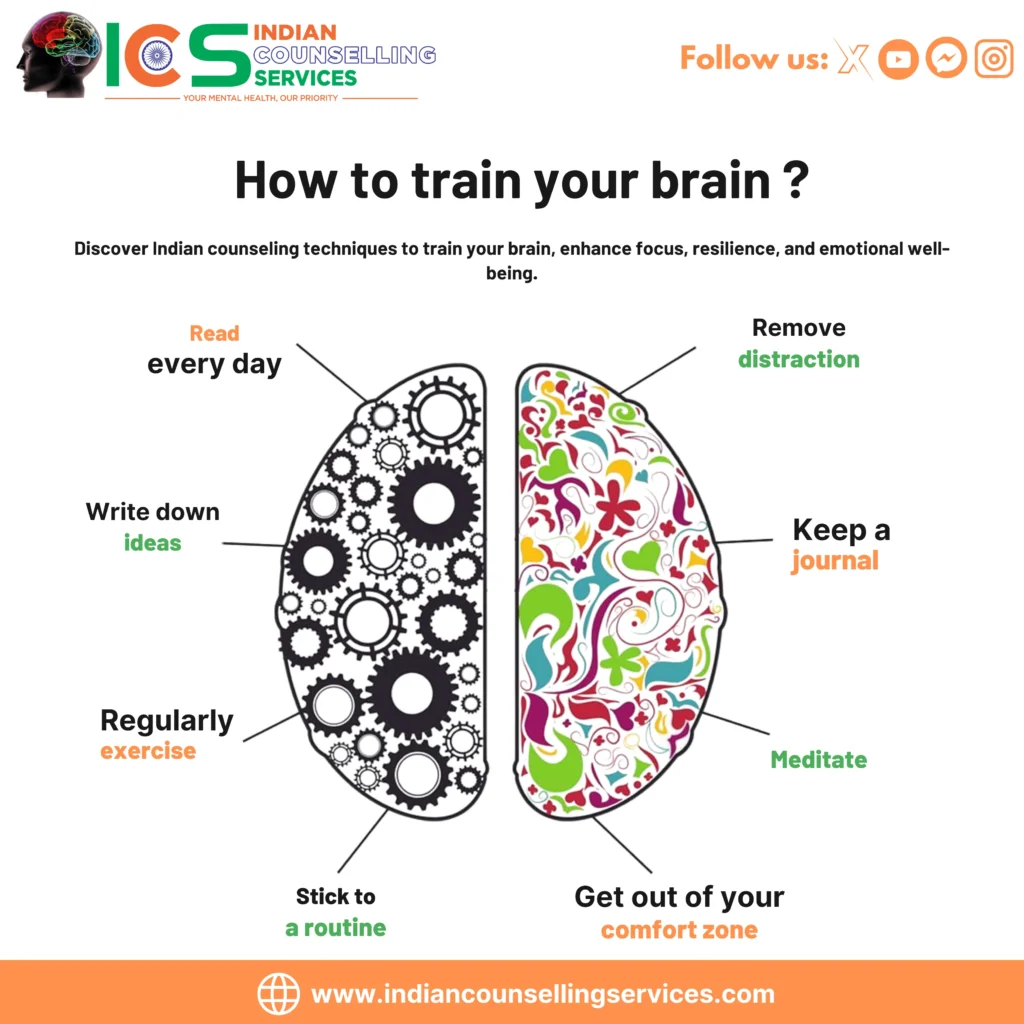
How to Train Your Brain: A Guide to Boosting Mental Fitness
The brain is the control center of your body, responsible for your thoughts, actions, and emotions. Much like physical exercise strengthens your body, mental training sharpens your mind, enhances memory, and boosts overall cognitive function. By adopting targeted strategies, you can enhance your brain’s capacity and maintain its health as you age.
In this blog, we’ll dive into practical methods to train your brain and improve its performance for better productivity, creativity, and emotional resilience.
Investing in mental fitness has numerous benefits:
- It enhances focus and problem-solving abilities.
- Improves memory and learning capacity.
- Strengthens emotional intelligence and stress management.
- Reduces the risk of age-related cognitive decline.
Your brain’s ability to adapt and form new connections—known as neuroplasticity—allows it to grow and improve throughout your life.
Physical exercise is one of the most effective ways to maintain and improve brain health.
The Science Behind It
When you exercise, your body increases blood flow to the brain, delivering oxygen and nutrients essential for brain function. Physical activity also stimulates the production of brain-derived neurotrophic factor (BDNF), a protein that promotes the growth of new neurons.
How to Get Started
Incorporate aerobic exercises like jogging, cycling, or swimming into your routine for at least 150 minutes per week.
Try activities that engage your mind and body simultaneously, like dancing or playing sports.
Add mindfulness-based exercises like yoga to reduce stress and enhance focus.

Mindfulness and meditation help you train your brain to focus on the present and regulate your emotions effectively.
The Science Behind It
Studies show that mindfulness practices reduce stress and increase gray matter in areas of the brain associated with learning and memory.
How to Get Started
Set aside 10–15 minutes daily for mindfulness meditation. Apps like Insight Timer or Calm can provide guided sessions.
Incorporate mindfulness into daily activities, such as eating or walking, by focusing fully on the experience.
Use breathing exercises during moments of stress to regain calm and clarity.
Engaging in activities that stretch your brain can improve cognitive flexibility and strengthen neural connections.
The Science Behind It
When you challenge your brain with new skills or knowledge, it forms new neural pathways, enhancing your ability to learn and adapt.
How to Get Started
Take up a new hobby such as painting, knitting, or playing a musical instrument.
Learn a new language or explore a subject that interests you through online courses.
Read diverse books or engage in discussions that push you to think critically.
Puzzles and games designed to stimulate cognitive functions are an enjoyable way to train your brain.
The Science Behind It
Brain-training games improve memory, attention, and problem-solving skills by targeting specific mental processes.
How to Get Started
Play logic-based games like Sudoku or chess to improve strategy and focus.
Solve crosswords or word searches to boost vocabulary and recall.
Use apps like Lumosity or Elevate for structured brain-training exercises.
Emotional intelligence (EQ) is critical for building strong relationships and making sound decisions.
The Science Behind It
A high EQ enhances brain areas responsible for empathy, stress management, and social interaction.
How to Get Started
Practice active listening to understand others better.
Reflect on your emotions and their triggers to develop self-awareness.
Build empathy by imagining situations from others’ perspectives.
Sleep is vital for brain function, as it allows the brain to repair itself and consolidate memories.
The Science Behind It
During sleep, your brain clears out toxins, processes experiences, and reinforces neural connections, which are essential for learning and memory.
How to Get Started
Aim for 7–9 hours of uninterrupted sleep each night.
Create a bedtime routine to signal your body that it’s time to wind down.
Reduce screen time an hour before bed to avoid disrupting your circadian rhythm.
Nutrition plays a significant role in maintaining brain health. A diet rich in brain-friendly nutrients can improve cognition and protect against decline.
The Science Behind It
Foods high in antioxidants and omega-3 fatty acids combat inflammation and support neural health.
How to Get Started
Add fatty fish like salmon, nuts, and seeds to your diet for omega-3s.
Eat colorful fruits and vegetables like blueberries, spinach, and broccoli for their antioxidant content.
Stay hydrated, as even mild dehydration can affect concentration and mood.
Social interactions stimulate your brain, boosting mental and emotional health.
The Science Behind It
Engaging with others enhances areas of the brain involved in empathy, communication, and memory.
How to Get Started
Spend quality time with family and friends, whether in person or virtually.
Join social groups, clubs, or communities aligned with your interests.
Volunteer or participate in group activities to meet new people and strengthen relationships.
Chronic stress can impair cognitive function and damage brain cells over time.
The Science Behind It
Stress raises cortisol levels, which, when prolonged, can shrink the hippocampus—a critical area for learning and memory.
How to Get Started
Practice relaxation techniques such as progressive muscle relaxation or journaling.
Delegate tasks or set boundaries to manage workload effectively.
Seek support from a therapist or counselor if stress becomes overwhelming.
Creative pursuits not only make life enjoyable but also challenge your brain to think in new ways.
The Science Behind It
Creative activities promote neuroplasticity, encouraging your brain to form new pathways and think outside the box.
How to Get Started
Dedicate time to creative hobbies like drawing, writing, or cooking.
Brainstorm solutions to everyday problems by approaching them from different perspectives.
Keep a notebook handy to jot down ideas and inspirations.
Training your brain is an ongoing process that requires consistency and effort. By adopting these strategies, you can enhance your mental fitness, improve your cognitive abilities, and foster emotional well-being.
Start small by incorporating one or two habits into your daily routine and gradually build from there. With time, these practices will become second nature, helping you unlock your brain’s full potential and lead a more vibrant, fulfilling life.
